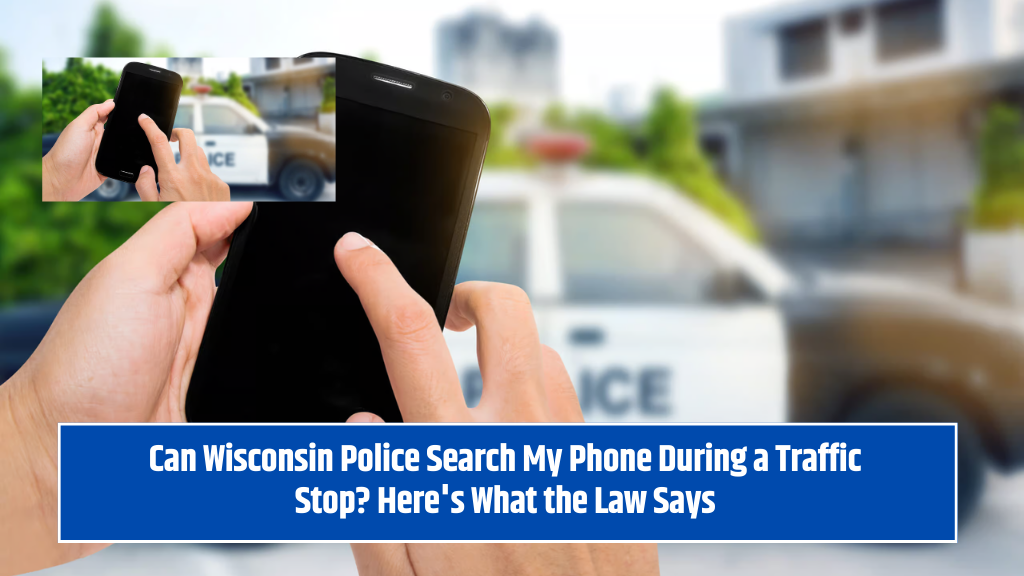When you’re stopped by the police, one big question you might have is whether it was even legal for them to stop or search your car. This is especially common during drunk driving (OWI) investigations. While the answer can be complicated, the truth is, each traffic stop must be looked at separately to see if the police followed the law during the search.
Usually, in Wisconsin, police need a search warrant to check your property. But when it comes to your car, they only need something called “probable cause.” Let’s break down what probable cause means in Wisconsin, and what police might look for to justify searching your vehicle.
What is Probable Cause in Wisconsin?
Probable cause is a legal term, but it’s not explained very clearly in Wisconsin laws. It gives police the right to search or arrest if they have some real reason to think a crime is happening. They can’t just guess or act based on a feeling.
Every case where probable cause is used must be carefully looked at. If you’ve been arrested because of probable cause, it’s important to talk to an experienced criminal defense lawyer to protect your rights.
Common Ways Police Try to Show Probable Cause During an OWI Stop
Since probable cause is not clearly written in Wisconsin laws, officers have a lot of freedom to decide what they think is suspicious. Knowing your rights can help you avoid problems during a traffic stop. Here are some common ways they might claim probable cause:
The Officer’s “Gut Feeling”
If a police officer pulls you over just because they have a “hunch,” that’s not enough for probable cause. They must see something real that looks suspicious.
For example, if you are driving in a way that looks unsafe—like swerving or not staying in your lane—they might say that’s probable cause. Sometimes, the smell of alcohol or drugs from your car can also be used as evidence.
But keep in mind, many things like nerves or health problems can cause unusual driving. That’s why it’s smart to have a good OWI lawyer if you are charged after a stop like this.
Police often use field sobriety tests to support their case, but these tests are not always reliable. You have the right to refuse to take these tests unless you have a commercial driver’s license.
Unintended “Admission of Guilt”
Sometimes, police get probable cause because of what you say. If an officer asks, “Have you been drinking?” and you answer in a way that sounds guilty, they can use your words against you.
Even a simple question like “Do you know why I pulled you over?” is meant to get you to admit something. Always be careful when talking to police during a traffic stop.
If you end up facing drunk driving or drug charges after a stop, it’s very important to speak with a skilled Wisconsin defense lawyer.
Can Police Search You During a Traffic Stop?
If the police arrest you after pulling you over, they are usually allowed to search you without a warrant. This is considered reasonable under the Fourth Amendment to protect officers and collect evidence.
The main reasons for this search are:
- To make sure you don’t have weapons
- To keep evidence safe for use in court
- To protect the police officers during the arrest
What Police Are Allowed to Do After Stopping You
Here’s a simple list of what police can legally do after a traffic stop if they have probable cause:
- Tell everyone in the car to step out
- Ask for your driver’s license, registration, and insurance
- Look at the vehicle identification number (VIN)
- Use a police dog to sniff for illegal substances
- Pat you down for weapons if they think you might be armed
- Search your car if they believe there are illegal items inside
It’s important for all drivers to know their rights. Vehicle searches are treated differently than searches of your home or other property.
If you think the police pulled you over or searched your car without following the law, you should contact an experienced criminal defense lawyer as soon as possible.
Get Help From a Skilled Defense Attorney
If you are facing charges related to OWI, drugs, or illegal searches in Wisconsin, it’s important to get advice from an expert. Attorney Patrick J. Stangl, who has been defending clients since 1991, offers a FREE 10-minute consultation to discuss your case. There’s no cost and no obligation—just honest advice about your options.














